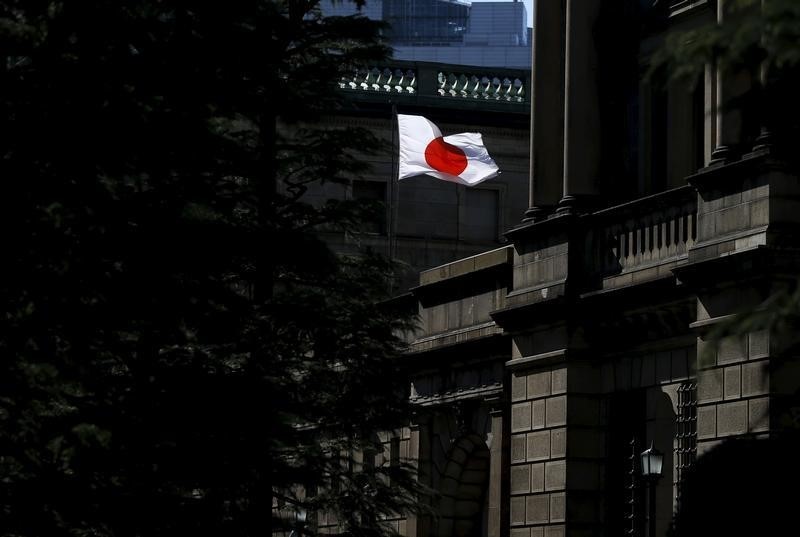U.S.-Japan trade pact; Alphabet, Tesla to report - what’s moving markets
(Bloomberg) -- The Bank of Japan launched a new lending program to support small businesses struggling amid the coronavirus but held off from adding major stimulus at an emergency meeting Friday.
The BOJ kept its policy interest rates and asset purchases unchanged, while finalizing details of a lending program Governor Haruhiko Kuroda instructed his staff to put together last month.
The yen strengthened a touch against the dollar after the decision, moving from around 107.71 against the greenback to around 107.56. The Nikkei 225 stock index gave up its early gains following the announcement.
The decision comes shortly after a government report showed core consumer prices turned negative for the first time since 2016, deepening concern over a possible re-emergence of deflation and indicating further BOJ action may be needed down the road.
For now, the central bank’s focus has shifted to preventing bankruptcies, saving jobs and preventing an economic recession from turning into a financial crisis.
“The lending program shows the BOJ’s priority is corporate financing now,” Takahiro Sekido, a former BOJ official who is now a strategist at MUFG Bank Ltd., said before the decision. “This kind of measure may not be shocking for the market, but it will probably be appreciated by banks and support businesses.”
The program, worth about 30 trillion yen, won’t offer direct assistance to businesses like the Federal Reserve’s Main Street Lending Program. Instead, it funnels money to companies via commercial banks and other financial institutions.The facility encourages lending to companies by providing free loans to financial institutions and then paying them 0.1% interest on the amount they in turn lend out.
Combined with an earlier lending program and its buying of corporate bonds and commercial paper, the BOJ said its coronavirus response measures now total 75 trillion yen.
The BOJ announced Friday’s emergency meeting days in advance and Kuroda had already talked publicly about the broad outlines of the lending program so investors haven’t expected the aggressive action of recent unscheduled gatherings by the Fed and European Central Bank.
What Bloomberg’s Economist Says
“Getting quick support to small and medium-sized companies will be especially important -- they account for the bulk of employment in Japan (about 70% of the workforce).”
Yuki Masujima, economist
Click here to read more
Still, no major policy action now doesn’t mean the central bank is lowering its guard. The government has lifted a state of emergency from most parts of the country outside Tokyo and Hokkaido, but data earlier this week showed exports plunging more than 20% and the economy falling into a recession that is expected to deepen sharply.
The BOJ is set to meet again June 15-16. The bank said Kuroda won’t be holding his customary post-decision press conference later Friday.
Policy Recap
- Interest rates to remain at the current low level or even lower.
- A rate of -0.1% applied to some reserves kept at the bank by financial institutions.
- Yield target of about 0% for 10-year Japanese government bonds, with a trading range of about 0.2 percentage point on either side of the mark.
- Japanese government bonds to be purchased as needed and without a limit, though the amount of purchases remains secondary to controlling interest rates.
- A guideline to increase holdings of exchange-traded funds with an upper limit of 12 trillion yen ($111.5 billion) a year. Actual purchases vary widely from month to month, depending on market conditions.
- Active buying of corporate bonds and commercial paper with an expanded upper limit on holdings totaling 20 trillion yen.
(Adds market reaction)
©2020 Bloomberg L.P.
